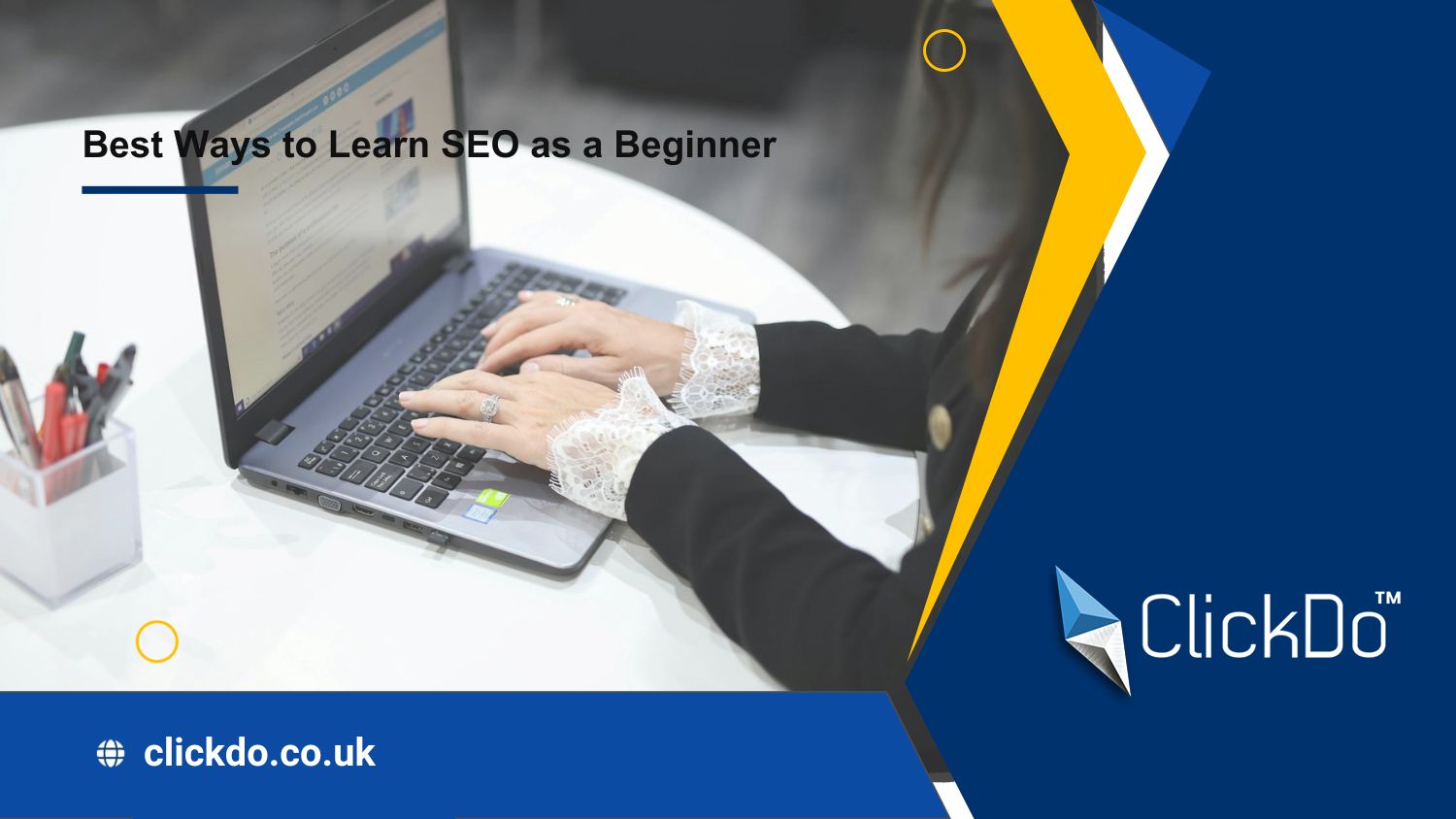
5 Best Ways to Learn SEO as a Beginner
In today’s digital landscape, where an online presence is crucial, mastering SEO techniques is paramount to improving your website’s ranking and attracting relevant audiences.
Whether you’re aiming to boost your business or increase visibility for personal projects, understanding SEO is critical. Learning SEO may initially seem daunting, given its complexity and the abundance of misinformation in the field, especially for complete beginners.
However, anyone can grasp its principles with dedication, time, and proper guidance.
Without further ado, let’s get started:
4 Key Aspects of Learning SEO
 1. Search Engine Functionality
1. Search Engine Functionality
Search engines like Google gather and store web content in an index, like a vast library. When users search, the engine retrieves relevant pages from this index based on complex algorithms. Indexing is crucial for ranking in search results, achieved through sitemaps and links.
2. Keyword Research
Discovering what users search for is vital for visibility. Keyword research tools like Ahrefs’ Keywords Explorer help identify relevant keywords and estimate traffic potential based on search volumes and other metrics.
3. On-Page SEO
Optimising content on your pages to align with user search intent is key.
4. Link Building
Acquiring backlinks from other websites to yours is crucial for SEO, as backlinks are a top-ranking factor. There’s a strong correlation between the number of linking sites and organic search traffic.
5 Expert Tips on how to learn SEO
 1. Explore Reliable Resources
1. Explore Reliable Resources
Leverage reputable educational platforms such as the HubSpot Blog, YouTube Channel, Search Engine Journal, Search Engine Land, SEMrush, and the Bing Webmaster Guidelines to delve deeper into SEO.
Additionally, consider enrolling in free SEO courses from institutions like HubSpot Academy, Google Analytics Academy, MOZ Academy, and Semrush Academy. These courses provide structured learning paths and certifications upon completion. They include search engine crawling, indexing, ranking, website audits, content optimisations, and quality backlink strategies.
Books on SEO can also help build effective SEO strategies whether you are a novice user or a professional. These resources and courses can enhance your understanding of SEO, optimise strategies effectively, and improve your website’s visibility and organic traffic.
2. Stay Updated on Trends
SEO is constantly evolving. You can start by regularly reading reputable SEO publications, blogs such as Search Engine Land and Search Engine Roundtable, and industry-backed blogs like Semrush, Ahrefs, and Moz. Subscribing to newsletters and using tools like Feedly can streamline access to valuable updates.
Additionally, explore educational content on YouTube, including pre-recorded webinars from industry experts. Stay informed through podcasts dedicated to SEO and digital marketing.
Engage with SEO thought leaders on social media platforms like Twitter and LinkedIn to glean daily insights and industry reflections. Participate in online forums and communities like WebmasterWorld and Webmasters Stack Exchange for troubleshooting and knowledge-sharing.
3. Conduct Competitor Analysis
Conducting a comprehensive competitor analysis involves several critical steps. Initially, you should identify competitors by manually searching top-ranking domains on search engines like Google. Using tools like Semrush can streamline this process. By entering your domain into Semrush’s “Domain Overview,” you can quickly find the main organic competitors and evaluate their authority score. This enables a deeper analysis of performance and keyword overlap.
Keyword gap analysis is critical to identifying opportunities and guiding content creation. Semrush’s Keyword Gap Tool compares your domain with competitors to uncover relevant keywords. Backlink analysis is crucial for understanding competitors’ linking strategies. Semrush’s Backlink Analytics and Backlink Gap Tool reveal valuable insights.
Additionally, content and technical analyses evaluate competitors’ content quality, metadata, and technical SEO performance. Leveraging tools like Semrush and Google PageSpeed Insights provides refined insights to enhance your competitive edge.
4. Implement Hands-On Strategies
Put your SEO knowledge into action by applying strategies on your website or blog or a practice site. Monitor the outcomes and adjust your plan based on performance metrics to gain practical experience and enhance your skills.
Begin by establishing your website, selecting your niche and keywords, developing, and optimising your content, building links, and tracking your progress. Engage in online communities, forums, and groups to seek advice, receive feedback, and glean insights from seasoned SEO experts and beginners.
5. Utilise SEO Tools
Tools like HubSpot’s SEO Marketing Software, Website Grader, Google Search Console, Google Analytics, Ahrefs, Seobility, and Jasper provide valuable insights and assistance in improving SEO performance and content optimisation.
Conclusion
As a beginner you can learn SEO independently, although it may take some time as there’s much to cover without any experience. Fortunately, a wealth of helpful information is available to assist you in your learning journey. Expert SEO books, tutorials and guides can provide invaluable guidance if your goal is to rank highly for relevant keywords and attract significant website traffic via search engines. So start today to make your website stand out amidst millions of others.
Author Profile
- As the Chief of Marketing at the digital marketing agency ClickDo Ltd I blog regularly about technology, education, lifestyle, business and many more topics.
Latest entries
 Digital MarketingMay 22, 2025What If Your Website Starts Sinking On Google?
Digital MarketingMay 22, 2025What If Your Website Starts Sinking On Google? Digital MarketingMay 2, 20254 Digital Marketing Techniques Transforming the Online Entertainment Industry
Digital MarketingMay 2, 20254 Digital Marketing Techniques Transforming the Online Entertainment Industry Digital MarketingApril 17, 2025From Healthcare to Hospitality: How Businesses in these Sectors can Thrive with Tailored SEO Strategies
Digital MarketingApril 17, 2025From Healthcare to Hospitality: How Businesses in these Sectors can Thrive with Tailored SEO Strategies Digital MarketingApril 8, 2025How AI Is Changing the Future of SEO: Top 9 Tactics for 2025
Digital MarketingApril 8, 2025How AI Is Changing the Future of SEO: Top 9 Tactics for 2025

